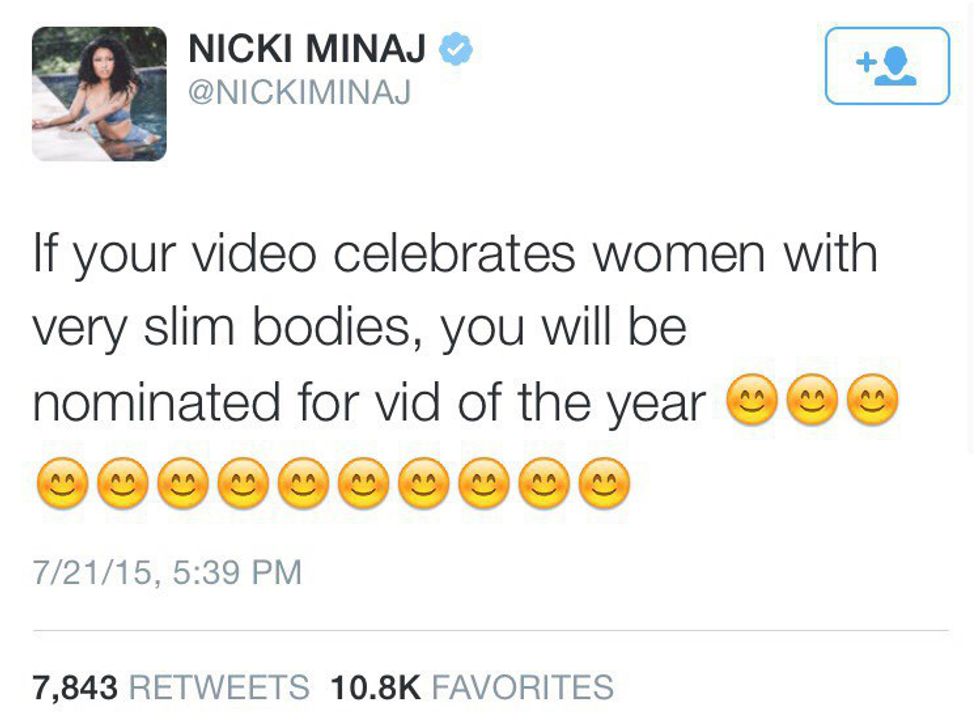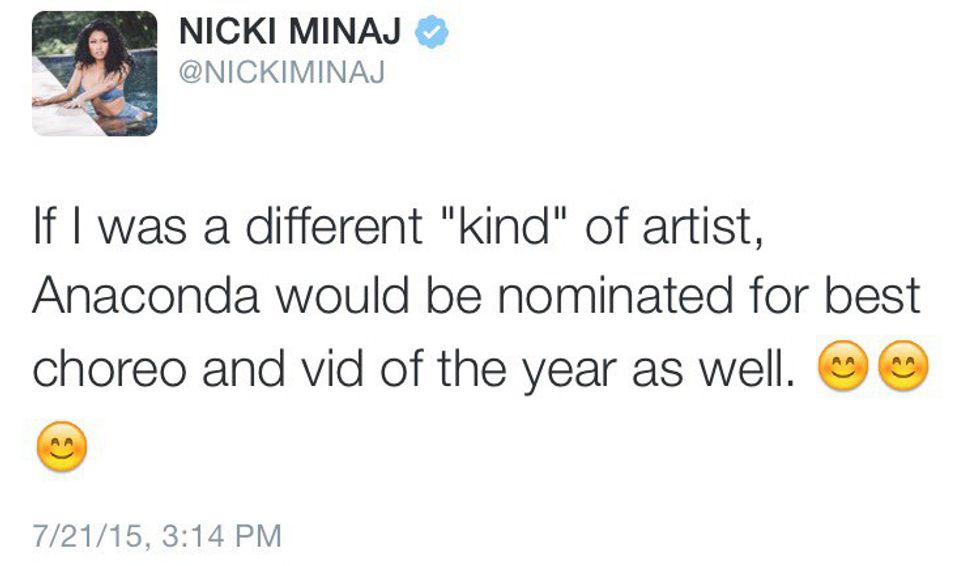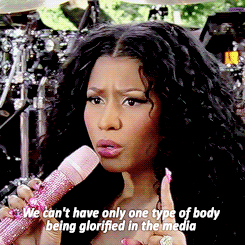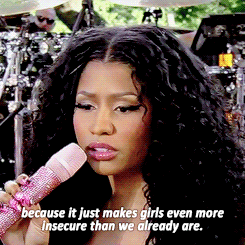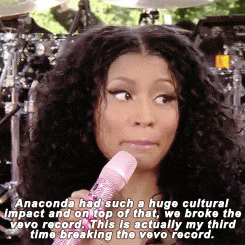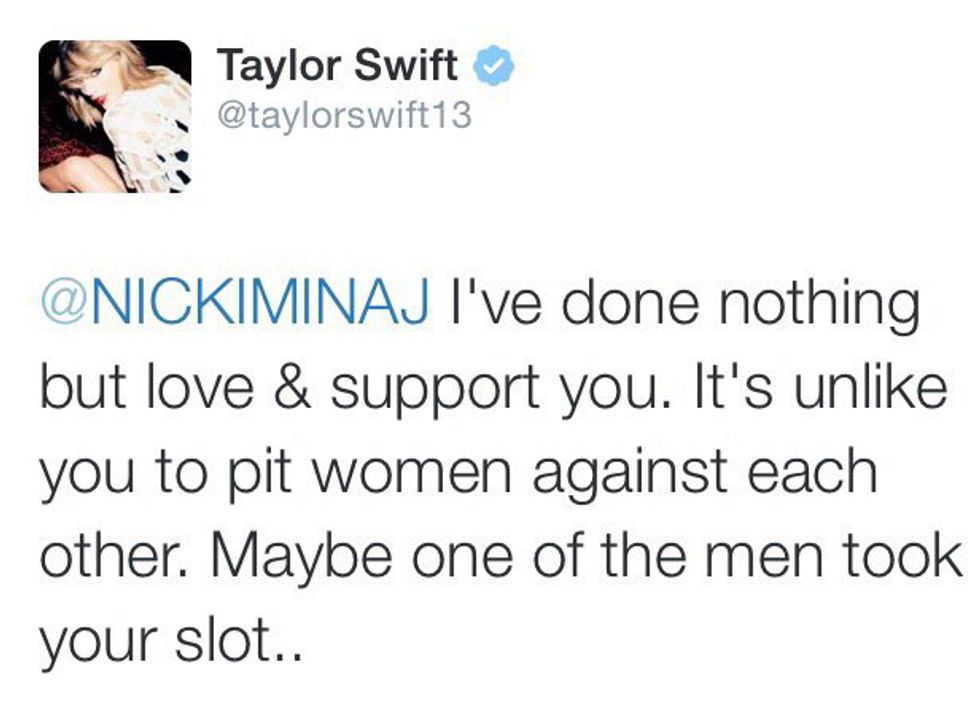Last week, MTV released the complete list of this year's MTV Video Music Awards nominations. Surprisingly, Nicki Minaj's unforgettable music video for hit single, " Anaconda," was not included in the list. Minaj took to twitter to express her disappointment. She attributed the snub to her video not including "thin" women, and said that her being a certain "kind" of artist cost her the nomination.
Nicki Minaj is known for speaking out against sexism and racism in the music industry without reservations and these tweets are no exception. There is no doubt that female artists, in general, are heavily judged on their appearance. However, our society tends to glorify thinness in terms of body shape, and eurocentric features in terms of physical appearance. Women of color often have a hard time meeting these standards because, well, genes are not made to match society's ideals. They are often punished for this with harsh criticism and pressured into changing their appearance to please others.
Additionally, women of color struggle with being acknowledged for their contributions to our culture. "Anaconda's" snub is a perfect example of this. It seems absurd that a video that broke a record for most views, was constantly talked about, and could easily be considered a cultural phenomenon, wasn't given the credit it deserved.
That being said, the lack of attention we give these issues contributes to the ignorance surrounding specific troubles that women of color face every day.
This lack of awareness was manifested in Taylor Swift's response to Minaj's tweets when she felt personally attacked by them:
Like Minaj, Swift has spoken against sexism and has joined the list of female celebrities in favor of the feminist agenda. However, mainstream feminism is often accused of catering to the needs of only one population of women. This type of feminism is known as White Feminism. It often disregards the issues that affect women that aren't white, heterosexual, cisgender, thin, etc. Although I personally praise Swift for joining the movement, her feminism is not inclusive and doesn't help us all. What her feminism lacks is Intersectionality, a theory coined by sociologist Kimberle Crenshaw that suggests:
"categories such as gender, race, class, ability, sexual orientation and other axes of identity interact on multiple and often simultaneous levels, contributing to systematic injustice and social inequality."
We can't expect to achieve equality between the sexes when discrepancies between white women and women of color still exist. If you care about women's issues, you should be able to care about all women's issues, not just those that personally affect you. Unfortunately, Swift missed this point and unintentionally overshadowed Minaj's attempts to defend black women in the music industry by making the situation about her. This seems to be a common mistake privileged groups of people make, intentionally or not. An intersectional mindset reminds us that although we might be oppressed in one way, we are most likely privileged in another.
The misunderstanding could have served as a teaching moment, instead many media outlets took advantage of the opportunity to blow things out of proportion. They spread rumors of the "feud" between the artists, further proving the presence of sexism and its incessant need to pit women against each other for entertainment purposes. Since then, Minaj has shut down rumors of the feud, and Swift has apologized to Minaj by admitting that she "missed the point...misunderstood, then misspoke." Hopefully, a lesson was learned.




